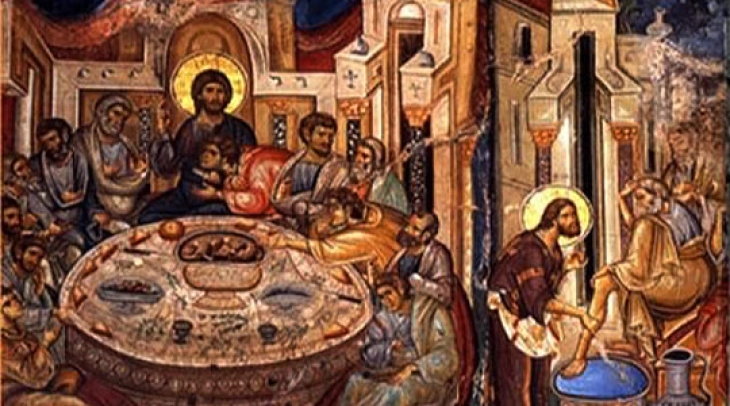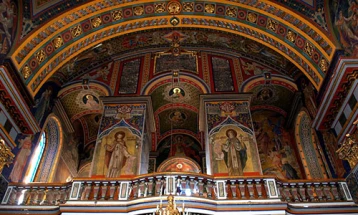Religious calendars
- 5 December 2024 (MIA)

5 December 2024 (MIA)
Macedonian Orthodox Church Calendar
The Holy Martyr Cecilia
Born in Rome of rich and eminent parents, she had a firm faith in Christ the Lord and a great zeal for the Faith. Vowing life-long virginity to God, holy Cecilia wore a rough hair shirt underneath the costly raiment that her parents gave her. When they forced her into marriage with a pagan, Valerian, she spent the first night urging her new-wedded bridegroom to go to Bishop Urban for baptism, and then himself to live a life of virginity.
Embracing the Christian faith, Valerian also brought his brother Tibertius to it. Both brothers were very soon condemned to death for their faith, but their zeal did not falter in the face of death itself. Taken to the scaffold, these two brothers succeeded in bringing the captain of the guard, Maximus, to the Faith, and they all three suffered together for Christ the Lord.
St Cecilia buried their bodies together and was then herself taken for trial, having unwearingly won over many pagans to the Christian faith. In one evening, she had won over four hundred souls.
When the judge asked her whence came her daring, she answered: ‘From a pure conscience and an unquestioning faith’. After harsh torture, she was condemned to be beheaded with the sword.
The executioner brought the sword down on her neck three times, but failed to kill her; he only wounded her and the blood ran down from her wounds, being caught in kerchiefs and bowls by the faithful to use for healing.
Three days later, Christ’s martyr and virgin gave her spirit into the hands of her Lord, to rejoice with him in eternity.
St Cecilia suffered with the others in about the year 230. Her relics are preserved in the church dedicated to her name in Rome. In the Western Church, St Cecilia is regarded as the patron of Church Music.
Catholic calendar
St. Sabbas
Spiritual student of Saint Euthymius at age 20. Anchorite from age 30, living in a cave, devoting himself to prayer and manual labor.
He wove ten willow baskets each day. On Saturday he would take them to the local monastery, led by Saint Euthymius, and trade them for a week’s food, and a week’s worth of willow wands for more baskets.
Took over leadership of the monks upon the death of Saint Euthymius. Co-superior with Saint Theodosius over 1,000 monks and hermits in the region. Sabbas was a simple man with little education, but with a firm belief in the spiritual benefits of simple living.
The combination of his lack of education and his severe austerities caused some of his charges to rebel. Sabbas tired of the squabbling, and he missed his time in prayer, so he fled to TransJordania. There he found a cave inhabited by a lion; the lion moved on, finding a new home, and giving the cave to the holy man.
A distorted version of this tale reached the rebellious monks; they seized on it, reported to the patriarch that Sabbas had been killed by a lion, and requested a new leader be appointed. As this message was being formally presented to the patriarch, Sabbas walked into the room.
This led to a confrontation during which the complaints of the monks were aired. However, the patriarch took Sabbas’s side, and the two restored order and discipline to the lives of the anchorites. Led a peaceful upraising of 10,000 monks who demanded the end of the persecution of Palestinian bishops of Anastatius I.







